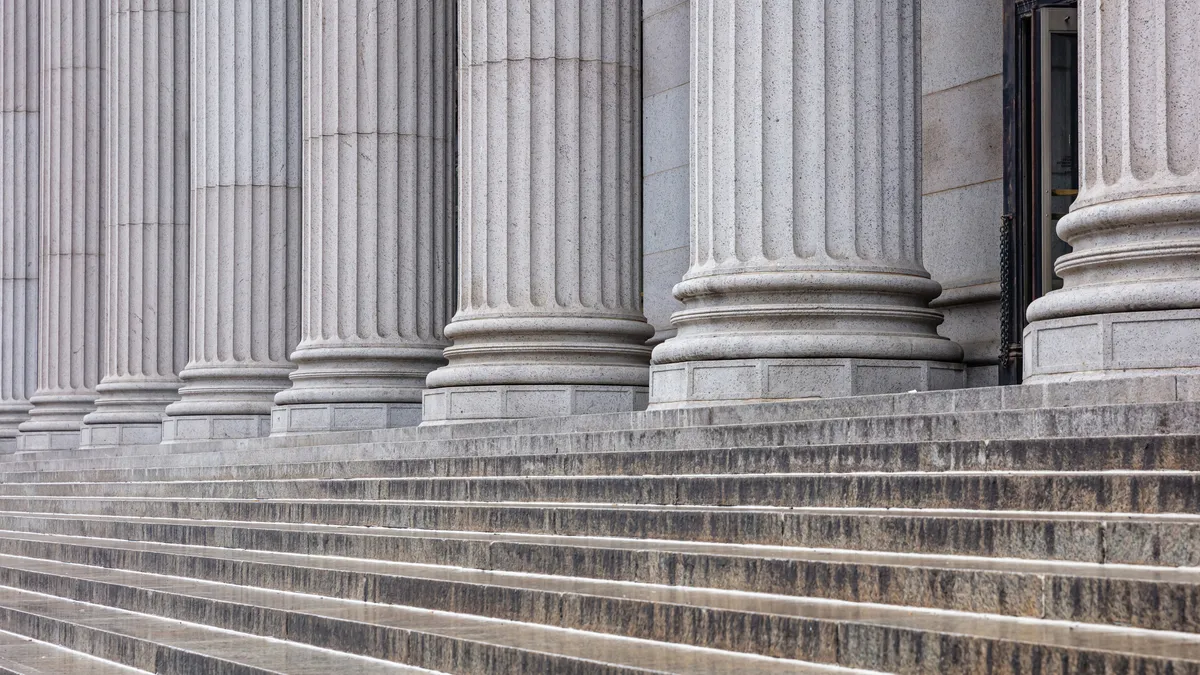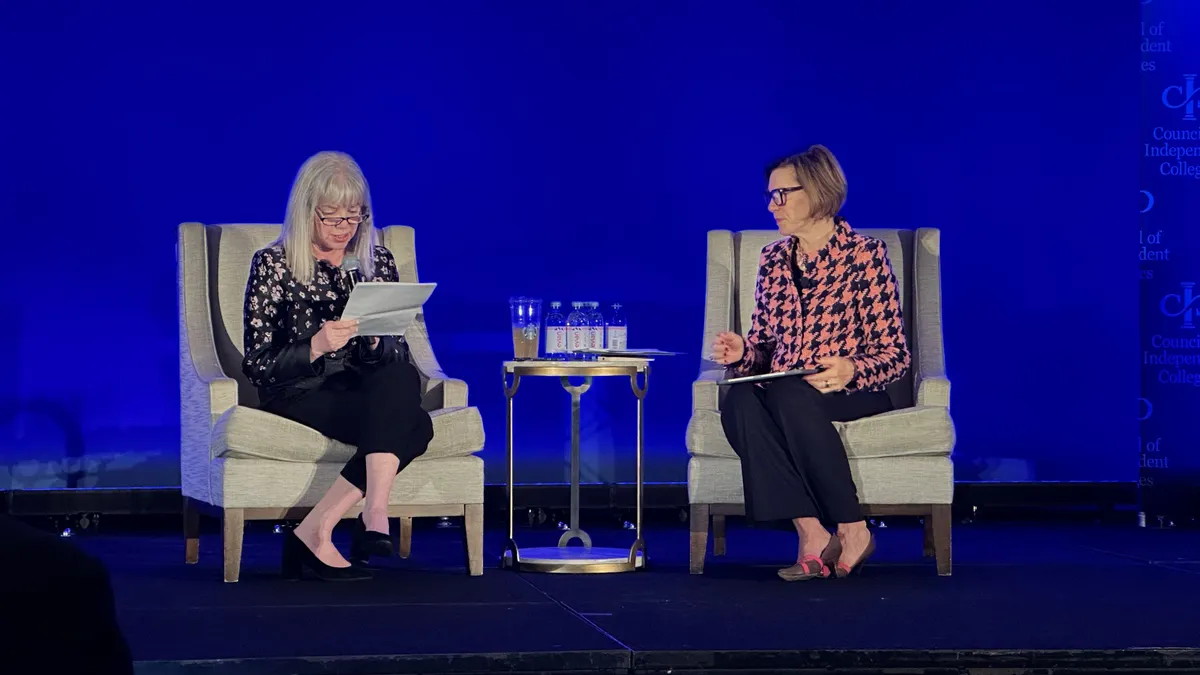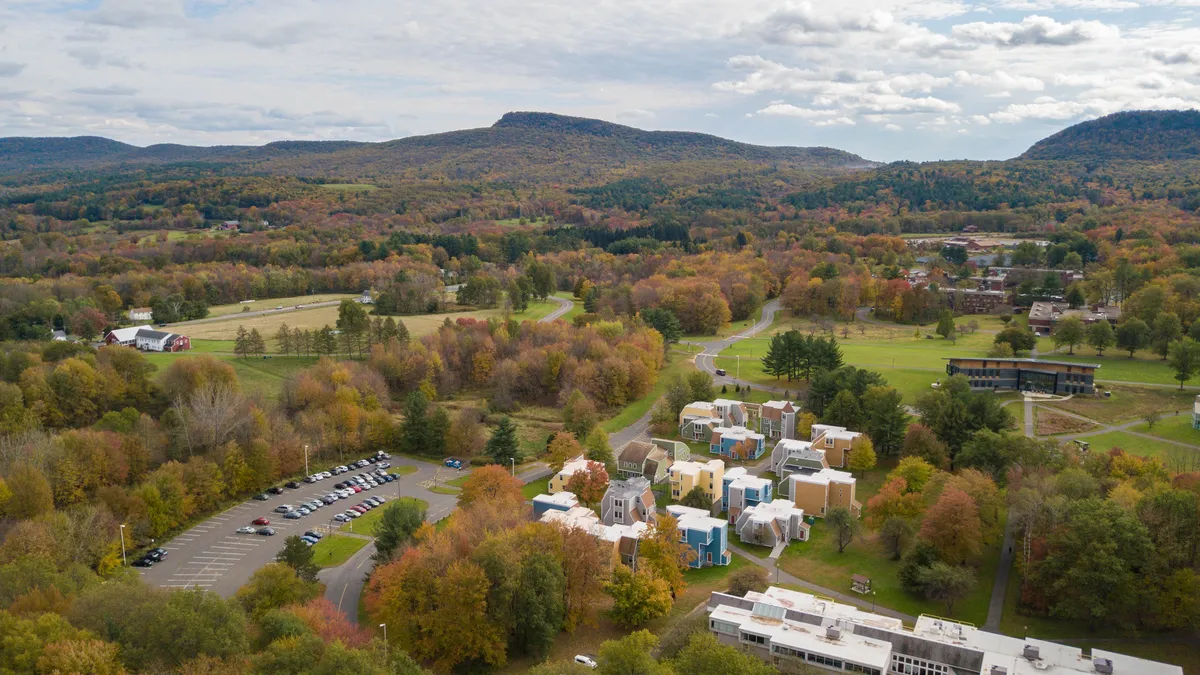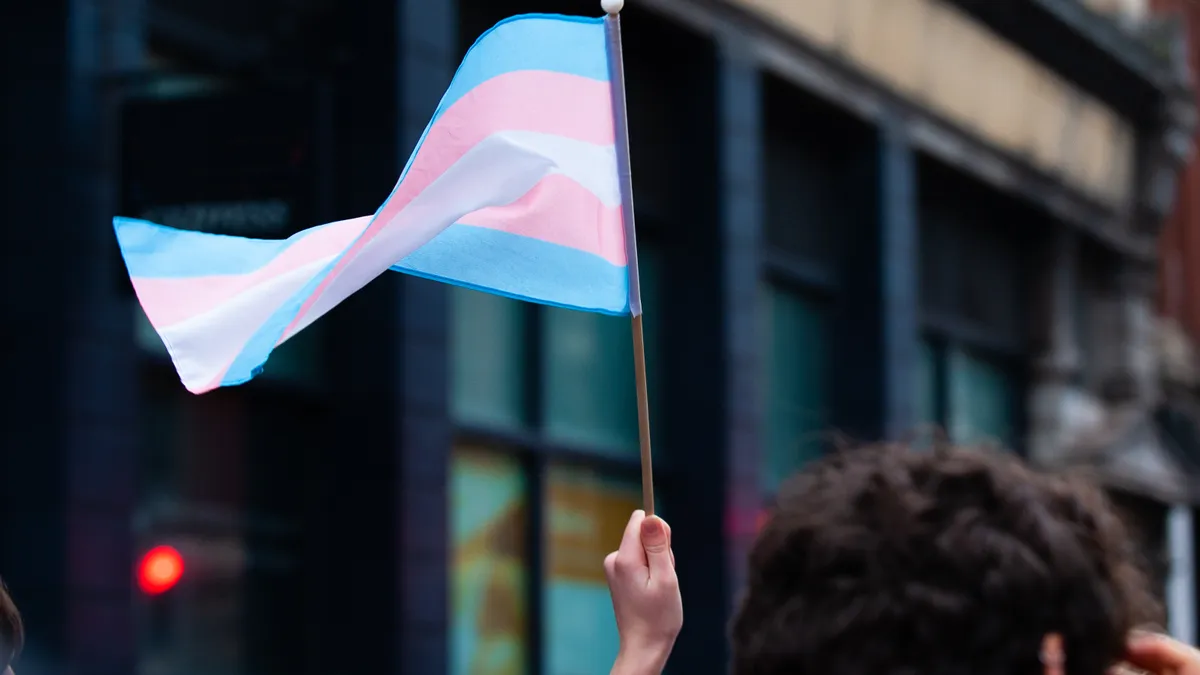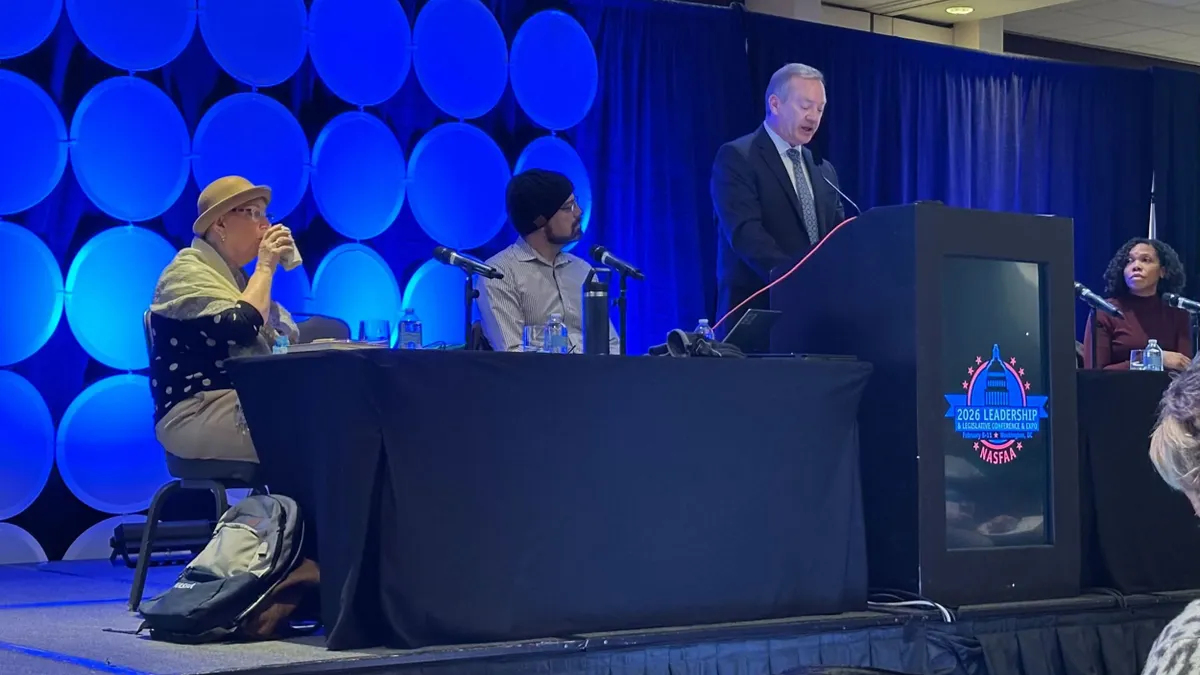Brett Sokolow, president of the Association of Title IX Administrators, spent part of the last three weeks holding mock hearings with college administrators, coaching them on how to run the courtroom-style proceedings used to judge campus sexual violence allegations, which are required by complex new federal regulations that go into effect Friday.
Sokolow, who also leads consulting firm TNG, said campus officials "were shocked" by the "slow and stilted" pace of the faux tribunal, and he estimated the real proceedings could stretch days.
"It will take skilled litigators to manage all this," Sokolow said.
The new rule is the product of a years-long effort by the U.S. Department of Education to rewrite how U.S. colleges must investigate and address episodes of sexual misconduct.
It represents a seismic shift for institutions, which for about half a decade followed guidance issued under the Obama administration that survivor advocates consider transformative, catapulting sexual violence on college campuses into a bright national spotlight.
Contingents within the sector are unimpressed with the rule. They say it is vague and mires Title IX processes to a point that students reporting sexual assault will not want to pursue formal investigations. Trying to adapt it during the health crisis has also proven difficult, which experts in the law say will likely result in shaky proceedings.
Title IX practitioners are "mostly irate," Sokolow said, adding they spent years adjusting to the previous guidance.
"And now a grenade was thrown in all their efforts," he said.
What the rule does
Education Secretary Betsy DeVos had deemed the Obama-era policies unfair, echoing grievances of civil liberties and men's activist groups that they were too heavily slanted against accused students, and that colleges were pressured to suss out guilt, even when there was none, under the threat of having federal funding yanked. DeVos said her regulation corrects this alleged imbalance.
It is most known for the new quasi-judicial process it sets up, which is far more intensive than a typical conduct hearing.
Both parties will be represented by an adviser, who can be a lawyer — an option some higher ed experts fear will spawn vast legal enterprises focused on absolving students who can pay top dollar. They must be allowed to cross-examine each other through the surrogate. However, critics believe this will result in a contentious and potentially retraumatizing environment for a survivor. A neutral third-party will vet questions to determine their relevance.
Who stocks the hearing panels will vary based on whether the institution wants to include faculty, staff or students, Sokolow said — or even outsource the job and bring in attorneys. The latter option likely wouldn't be affordable for less-wealthy colleges, however.
No matter what, the hearing board will need to be versed in information usually reserved for lawyers, such as which evidence is relevant for a case, Sokolow said.
The regulation also has come under fire for only allowing the panel to consider testimony given during the hearing. This means it couldn't factor in the story of a witness who could clearly prove whether an accused party is guilty but didn't show up for the panel.
The regulation also blocks colleges from launching an investigation if a student hasn't filed a formal complaint. Under the Obama guidance, institutions could investigate episodes even if a student hadn't filed the complaint.
It also limits them from looking into certain off-campus incidents, such as those that occurred in an apartment complex not affiliated with a college or on a study abroad trip.
The definition of "sexual harassment" also was narrowed to that used by the U.S. Supreme Court in Title IX cases, so the actions must be "severe, pervasive and objectively offensive" enough to interfere with a student's education. The Obama administration labeled it "unwelcome conduct of a sexual nature."
More than a dozen Democratic attorneys general pointed out those limitations, and tried to use them as a springboard to stop the rule from taking effect, arguing in two lawsuits that they effectively undermined the law. Federal judges in the cases recently declined to grant an injunction. One of the judges, Carl Nichols, was appointed by President Donald Trump and also stopped a House committee from reviewing the president's New York state tax returns last year.
Survivor activist groups, led by the American Civil Liberties Union, have also sued.
A rough transition
Colleges have needed to adjust to what they say is an astoundingly short turnaround to execute the rule, compounded by the coronavirus pandemic. The Education Department published the final rule in May, giving institutions only a few months to construct the complicated systems needed to comply with it.
At the same time as they were trying to mitigate potentially devastating pandemic-related budget cuts and ensure the virus wouldn't spread around campuses, institutions were training officials in the legal intricacies of the rule — virtually.
Doing so was far from ideal, said Peter Lake, director of the Center for Excellence in Higher Education Law and Policy at Stetson University, in Florida.
"This is an event. Court is a production," Lake said. "It requires event planning, case managers, security, technology support, all these things. People are slapping together what they can as fast as they can."
Not to say institutions ignored the department mandate. High-profile schools have already released detailed Title IX plans which match the new regulations.
That's in anticipation the Education Department will start enforcement right away, Lake said. Agency officials have repeatedly said institutions were aware the regulations were coming, waving away arguments that the timeline for implementing them was too short.
Outstanding questions
Some campus officials still have questions. For one, the department tried to clarify that the regulation wouldn't retroactively apply to alleged misconduct that occurred before Friday.
It's not so simple, Lake said, posing a scenario: How would a college handle "straddle cases" that happened a couple of days before the rule took effect, but the misconduct extended past the enforcement date?
And if an episode that occurred years ago was reported to a college now, officials would need to judge that case by policies they had in place at the time, Sokolow said.
"Colleges just got finished training hearing officers and decision-makers on the new rule, and now they would have to retrain them on something that hasn't applied in years," he said.
Meanwhile, courts nationwide continue to issue rulings that affect sexual misconduct rules in their respective jurisdictions, creating a complex patchwork of policies colleges need to follow depending on where they're based, said Jake Sapp, deputy Title IX coordinator and compliance officer at Austin College, in Texas.
The U.S. Court of Appeals for the Ninth Circuit, for instance, recently adopted what it called a "far simpler" standard for moving forward with Title IX claims. Litigation on these cases isn't likely to slow with the new rule, Sapp added.
Some states have also adopted their own sexual misconduct laws that colleges will need to incorporate, such as in Sapp's state of Texas, he said.
His college needed to develop two rules — one that complied with the Title IX regulations, as well as one that met the state's requirements.
Sapp said he and his counterparts "have been working like crazy" to get ready for the regulation. Though he's not sure whether it would curtail formal processes, he expects an uptick in informal resolutions, which can be used to resolve all cases except one in which an employee harrasses a student.
Informal resolutions can incorporate educational, rather than punitive measures, for a student accused of misconduct. The concept has grown more popular in some circles, as some survivors don't wish to punish an alleged attacker, experts in Title IX say. Though some critics argue this is a means for someone who actually committed an offense to escape consequences.
The regulation, and the efforts to implement it, might not matter if Joe Biden, the presumptive Democratic nominee for president, is elected in November, Lake said. A Biden administration will likely go through the lengthy regulatory process to uproot the regulations, which could take months, though there are ways he could direct that they not be enforced, he added.
"It would take time for the department to undo this properly," Lake said. "I'm not sure what would happen in the meantime."


